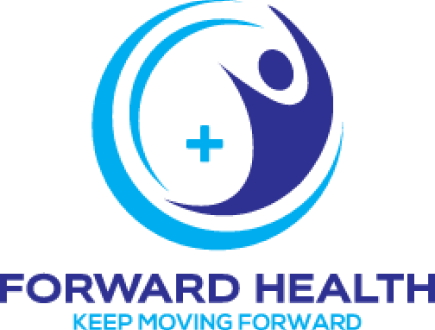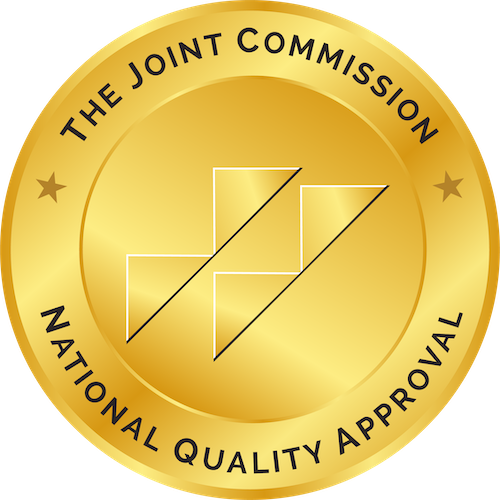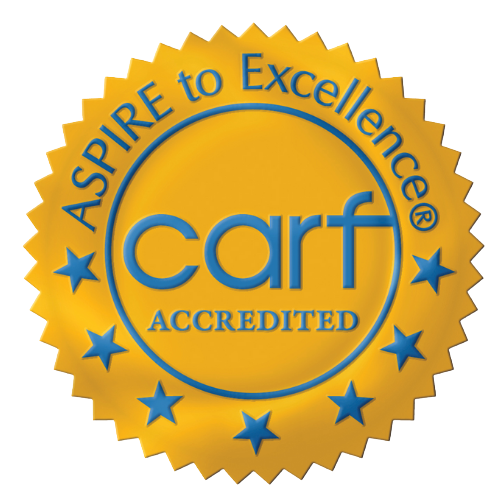Get the Best ADHD Treatment Programs in Ohio with Forward Health
Living with Attention Deficit Hyperactivity Disorder (ADHD) can be challenging, especially when it co-occurs with substance abuse. In Ohio, many residents grapple with the impact of ADHD on their daily lives, struggling to find effective solutions. The good news is that you’re not alone, and there are specialized ADHD treatment programs in Ohio designed to help you regain control and improve your quality of life.
Forward Health of Ohio is at the forefront of providing comprehensive ADHD treatment programs that address both the disorder and any co-occurring substance abuse issues. Whether you’re looking for outpatient ADHD rehab programs or more intensive treatment options, Forward Health offers tailored approaches to meet your unique needs. Below, we’ll explore the prevalence of ADHD in Ohio, delve into Forward Health’s innovative treatment methods, and guide you through the steps to get the help you deserve.
The Prevalence of ADHD in Ohio
In Ohio, the prevalence of ADHD is significant, with 3.9% of children ages 3-17 currently diagnosed and receiving both medication and behavioral treatment . This places Ohio at rank 11 nationally for ADHD treatment . Across the United States, ADHD diagnosis rates among children aged 3-17 years vary from 6% to 16% .
ADD and ADHD diagnoses are not just limited to individuals who are underaged. Adults often struggle with the disorders, some may even go undiagnosed for years. Nationally, estimates suggest that about 4-5% of adults have ADHD. This prevalence rate is based on various studies and surveys conducted across the United States. Thankfully, Ohio has various resources for individuals with ADHD, including specialized clinics, support groups, and educational programs. Organizations such as the Ohio Chapter of the National Alliance on Mental Illness (NAMI) and local mental health centers can provide support and information.
Challenges Faced by Individuals with ADHD
Living with ADHD can be challenging. You may struggle with inattention, hyperactivity, and impulsivity, which can affect your work or school performance . ADHD symptoms often worsen with stress, conflict, or increased demands in your environment . Additionally, up to 80% of adults with ADHD experience sleep problems, which can intensify symptoms.
The Connection Between Co-Occurring ADHD and Substance Abuse
Attention Deficit Disorder (ADD), often referred to as Attention Deficit Hyperactivity Disorder (ADHD) when including hyperactivity, and substance abuse frequently co-occur. The interplay between these conditions can be understood through various factors that contribute to their overlap.
One key factor is impulsivity. Individuals with ADD/ADHD often struggle with impulse control, which can lead to risk-taking behaviors such as experimentation with drugs or alcohol. This impulsivity makes them more susceptible to engaging in substance use at a younger age and more frequently.
Another factor is self-medication. People with ADD/ADHD might turn to substances as a way to manage their symptoms, such as restlessness or difficulty focusing. While this might provide temporary relief, it often worsens their condition over time, creating a cycle of dependency and exacerbation of symptoms.
ADD/ADHD can also make it challenging to regulate emotions and stress. Individuals with these conditions might use substances as a coping mechanism to handle negative emotions or stressors. This can be an attempt to manage feelings of frustration or to escape from the difficulties they face in their daily lives.
Social challenges further complicate the situation. Those with ADD/ADHD may experience difficulties in social settings and are often more easily influenced by peers. This susceptibility to peer pressure can increase their likelihood of experimenting with and abusing substances, particularly if their social circles normalize or encourage substance use.
Neurobiological factors also play a role. Both ADD/ADHD and substance abuse disorders involve dysregulation in neurotransmitter systems, such as dopamine. The overlap in these neurobiological factors might contribute to the co-occurrence of the two conditions.
Additionally, academic and occupational difficulties related to ADD/ADHD can lead to feelings of frustration and low self-esteem. These challenges might increase the risk of turning to substances as a way to escape or cope with the negative emotions associated with underachievement.
Treating co-occurring ADD/ADHD and substance abuse is complex and requires a comprehensive approach. Treatment plans often need to address both conditions simultaneously, incorporating behavioral therapy, medication management, and support for developing healthier coping strategies. Effective management typically involves close collaboration with healthcare professionals to ensure that both conditions are addressed in a way that supports overall well-being.
ADD VS ADHD
Although ADHD and ADD sound extremely similar, there are some key differences between the two diagnoses. Both Attention-Deficit/Hyperactivity Disorder (ADHD) and Attention-Deficit Disorder (ADD) are terms often used to describe conditions related to difficulties with attention and focus. While the two terms are sometimes used interchangeably, they reflect different aspects of the same overarching disorder. Understanding the distinctions between ADHD and the outdated term ADD is crucial for accurate diagnosis and effective treatment.
Attention-Deficit/Hyperactivity Disorder (ADHD) is a neurodevelopmental disorder characterized by persistent patterns of inattention, hyperactivity, and impulsivity that interfere with daily functioning. Individuals with ADHD often exhibit symptoms such as difficulty focusing, organizing tasks, or staying seated. There are three main types of ADHD: Inattentive, Hyperactive-Impulsive, and Combined. The Inattentive Type involves problems with focus and organization, the Hyperactive-Impulsive Type features symptoms like excessive talking and restlessness, and the Combined Type includes symptoms from both categories.
Attention-Deficit Disorder (ADD) was the term historically used to describe individuals who struggled primarily with attention and focus without significant hyperactivity. However, in the current diagnostic framework, ADD is no longer recognized as a separate diagnosis. Instead, it is considered an outdated term that falls under the broader category of ADHD, specifically referring to the Inattentive Type.
The key difference between ADHD and ADD lies in the terminology and diagnostic criteria. While ADD was used to denote attention difficulties without hyperactivity, ADHD encompasses a range of symptoms including both inattention and hyperactivity. The current diagnostic approach divides ADHD into various types based on the presence and combination of these symptoms, providing a more nuanced understanding of the disorder.
Modern usage in clinical practice focuses on ADHD as the comprehensive term for attention-related disorders. The term ADD is largely obsolete, replaced by ADHD to reflect the broader range of symptoms and subtypes. This updated terminology helps ensure that individuals receive accurate diagnoses and appropriate treatment based on their specific patterns of symptoms.
Typical ADHD Treatment Programs in Ohio
Treatment for Attention Deficit Disorder (ADD) and Attention Deficit Hyperactivity Disorder (ADHD) in Ohio involves a range of options designed to address various needs and severity levels. These include inpatient and outpatient care, medication, and counseling services, each serving a unique role in managing symptoms and improving overall functioning.
Inpatient ADHD treatment centers in Ohio are typically reserved for individuals with severe ADHD symptoms or those dealing with significant co-occurring conditions. This type of care provides intensive support and supervision in a controlled environment, which is crucial for managing symptoms that impact daily life and safety. Inpatient facilities offer 24/7 supervision and a highly structured setting, including daily routines and therapeutic activities designed to help stabilize symptoms. Multidisciplinary teams, consisting of psychiatrists, psychologists, nurses, social workers, and occupational therapists, work collaboratively to deliver comprehensive care. Institutions such as Nationwide Children’s Hospital in Columbus and the Cleveland Clinic’s Center for Behavioral Health offer specialized inpatient services for those in need.
An outpatient ADHD rehab program caters to individuals who require regular support but can manage their daily lives independently. This approach allows patients to live at home while engaging in treatment. Services include individual therapy sessions with licensed therapists, group therapy for shared experiences and support, and behavioral therapy to address specific symptoms like impulsivity and organizational challenges. Educational support and skill development are also integral components. Community mental health centers, such as OhioGuidestone and local ADAMHS Boards, provide these services, as well as private practice clinicians who specialize in ADHD treatment.
No matter what type of ADHD treatment center in Ohio an individual attends, medication is likely going to be utilized. Medication is a common component of ADHD treatment in Ohio, aimed at managing symptoms through adjustments in brain chemistry. Stimulants like methylphenidate (Ritalin) and amphetamine-based medications (Adderall) are frequently prescribed to enhance attention and reduce hyperactivity and impulsivity. For those who do not respond well to stimulants or experience significant side effects, non-stimulant options such as atomoxetine (Strattera) and guanfacine (Intuniv) may be considered. Regular medication management by a psychiatrist or primary care physician is essential to monitor effectiveness, manage side effects, and adjust dosages as needed.
Furthermore, counseling services address the emotional and psychological aspects of ADHD, helping individuals develop coping strategies and improve overall mental health. Cognitive Behavioral Therapy (CBT) is a widely used approach that focuses on changing negative thought patterns and behaviors associated with ADHD. Family therapy can improve communication and support within the household, while parent training provides strategies for managing a child’s behavior. Licensed therapists and counselors in community mental health centers, private practices, and specialized ADHD clinics offer these services.
In summary, Ohio provides a comprehensive array of treatment options for ADD/ADHD, ranging from intensive inpatient care to flexible outpatient services. Medication and counseling play crucial roles in managing symptoms and supporting overall well-being. By combining these approaches, individuals with ADHD can receive tailored support that meets their specific needs and promotes long-term recovery and improved quality of life.
Forward Health’s Unique ADHD Treatment Centers in Ohio
At Forward Health Ohio, you’ll find a comprehensive approach to ADHD treatment that addresses both substance use disorders and mental health concerns . Our evidence-based therapies include cognitive-behavioral therapy (CBT) and motivational interviewing, tailored to your unique needs . These techniques help you develop coping skills and challenge negative thought patterns.
We offer cutting-edge medication options, with our psychiatry services focusing on treating conditions like ADHD . Our supportive care environment is designed to guide you back into the community, emphasizing employment and life skills . Many of our staff members have personal recovery experiences, providing valuable insights and support .
Forward Health’s outpatient program includes group and individual counseling sessions, meeting several times each week . We specialize in treating addiction, dual diagnosis, and substance use, along with a range of related mental health conditions . Our goal is to help you change your entire life, becoming a responsible community member with continued support and structure .
Get ADHD/ADD treatment in Ohio Today
Forward Health Ohio offers comprehensive ADHD treatment programs in Ohio that address both the disorder and any co-occurring substance abuse issues. These programs combine evidence-based therapies, medication options, and supportive care to help individuals regain control of their lives.
If you or someone you know is struggling with ADHD in Ohio, don’t hesitate to reach out to Forward Health. Our specialized programs and experienced staff are ready to guide you towards a better quality of life. Contact Forward Health today to start your journey towards effective ADHD management and overall well-being. With the right support and treatment, you can overcome the challenges of ADHD and thrive in your personal and professional life.









